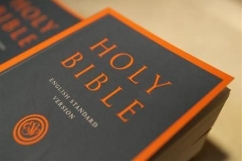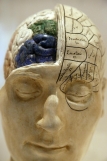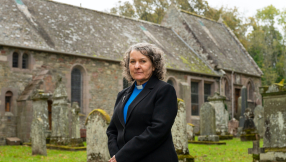A new Cambridge University study published today argues that atheism is not a modern invention, but rather dates back to 500 BC.

"There is evidence from the 5th Century [BC] onwards, initially quite sketchy but certainly from the 2nd Century BC people were compiling lists of arguments against the existence of the gods," Professor Tim Whitmarsh, Professor of Greek Culture at Cambridge and author of the study, told the Telegraph.
In Battling with the Gods, published today, Whitmarsh sought to debunk the "myth" that atheism is a modern, post-enlightenment invention.
"Adherents wish to present scepticism toward the supernatural as the result of science's progressive eclipse of religion, and the religious wish to see it as a pathological symptom of a decadent Western world consumed by capitalism," he wrote.
"Both are guilty of modernist vanity. Disbelief in the supernatural is as old as the hills."
Speaking to the Telegraph, Whitmarsh said: "Atheism, of course, is a Greek word.
"It started out as a negative term but I think there is evidence that people positively identified as that, using that word."
While the "rhetoric used to describe it [atheism] is hyper-modern", the reality is that "early societies were far more capable than many since of containing atheism within the spectrum of what they considered normal," he said.
The book cites evidence for atheism in the work of ancient Greek thinkers including Xenohanes of Colophon, who was born around 570 BC, and Cameades in the 2nd Century who compiled arguments against the existence of gods.
Without the use of science, "these early atheists were making what seem to be universal objections about the paradoxical nature of religion – the fact that it asks you to accept things that aren't intuitively there in your world.
"The fact that this was happening thousands of years ago suggests that forms of disbelief can exist in all cultures, and probably always have."

















